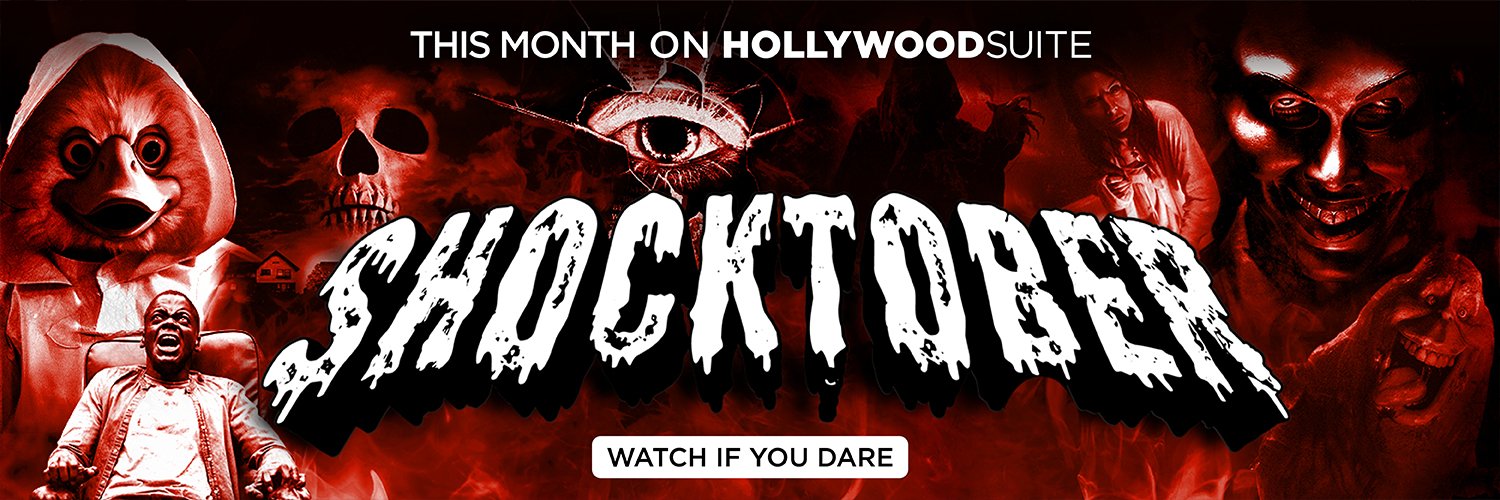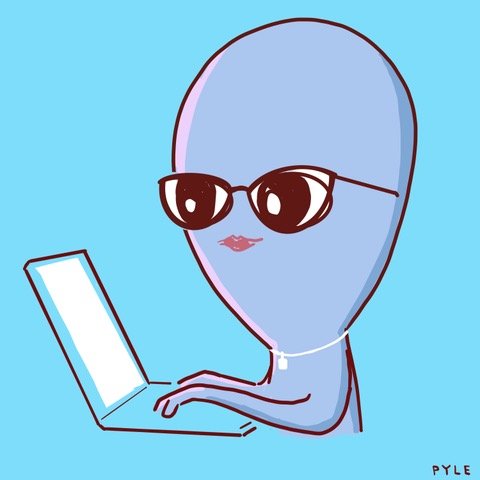Original-Cin Q&A: Strange Planet's Nathan W. Pyle on 'Jitter Liquid,' 'Star Damage' and Whether ETs Wear Socks
Based on the New York Times No. 1 bestselling graphic novel and social media phenomenon of the same name created by Nathan W. Pyle, Strange Planet is a 10-episode adult animated series and an hilarious and perceptive look at a distant world not unlike our own.
Set in a whimsical world of cotton candy pinks and purples, relatable blue beings explore the absurdity of everyday human traditions.
Voicing this world of beings are Tunde Adebimpe (Rachel Getting Married), Demi Adejuyigbe (The Amber Ruffin Show), Lori Tan Chinn (Awkwafina Is Nora From Queens), Danny Pudi (Community) and Hannah Einbinder (Hacks).
Our Bonnie Laufer had the opportunity to catch up with Nathan Pyle for a chat about the series and welcoming her into the Strange World community with her very own alien drawing (see below)
Strange Planet is now streaming on Apple TV+.
ORIGINAL-CIN: I have to start by thanking you so much for welcoming me into the Strange Planet family. The drawing you did of me as an alien is spot on (see below). How did you get me so right by just looking at my picture?
NATHAN W. PYLE: You are most welcome! I had a feeling that you're on your laptop a lot. You had that look that you're trying to think of how to phrase something. Looking off to the side. I think it's a pretty universal move, but particularly for you.
O-C: Strange Planet began as a webcomic. And now, with more than seven million followers, it’s a phenomenon. How did you come up with the concept of these blue beings who are really just like us?
PYLE: The truth is that the familiarization is often verbal. So when I looked at other defamiliarization in the past, kind of reframing what is common, I thought it'd be fun to do this in a simple four panel comic.
That can be really visually simple, but making them look like little extraterrestrial beings, especially if they're blue in this case, was an interesting process. They're very friendly looking, and I thought this would be a really fun way to kind of re-recount some of the experiences my wife and I were having.
We had just gotten married. And after being married and moving in together, I was reevaluating how I think about everything and why I do what I do.
Nathan W. Pyle
That kind of happens when you move in with someone. You're like, “Wait, why do I think this way?” I think that was helpful for me and Taylor. We've been married for about four-and-a-half years now. It's one of those things where you realize over time, your habits start to mold together, but at first you're really questioning everything.
O-C: For sure, but now you're a dad with two young kids. So how does that influence what you do for your work ?
PYLE: Well, let's put it this way. I have a ton of new respect for parents. My own parents, any parents.
It's definitely a challenge but I'd already made a lot of cartoons about young offspring before. I thought I knew about one or two of the phases of parenthood, but now I'm going through the toddler phase and I didn't know you had to wrestle your children just to get them to eat or to put clothes on.
I had no idea. So there's a lot of new material for me. I just thought there was a baby phase and a kid phase. But this middle phase where it's like having a tiny alligator in your house it's just incredible. It's hard to even get a reference photo to draw it because you can't get them to stay still.
O-C: Once you decided to make this into an animated series, how much did you take the fan-base into consideration? Did you get any kind of feedback from your fans saying, if you were to make this into an animated series, they would like to see anything in particular?
PYLE: Oh yeah, you always get advice. I've been making comics for, I think eight or nine years at least. And you get advice every day from your fans.
So it's something that comes from putting out art on the internet, especially when we're putting the adaptation to a webcomic, you're creating something entirely new because the webcomic itself is pretty sparse in terms of its world building compared to an actual animated series.
So there were a lot of fan opinions and people saying, “Well, I like the voices,” and some people saying that I should have made the voices this emotional.
My response has always been that this is a work in progress. We're really kind of building this as we go, and the truth is that we really enjoyed working with so many talented people to make this. You have to realize that the webcomic is going to have a different kind of appeal, because it allows the audience to fill in a lot of the details in their own mind.
When you create an animated series, you're answering a lot of those questions, you're filling in the gaps. So some of the fans say, “I don't know if this is for me.”
The interviewer, depicted as an ET by Nathan Pyle.
And, as I looked at other adaptations, I realized this is what happens. How does anyone adapt something? You get new fans, and some of the other fans say, “Well, I don't think you adapted it the right way.” And that's okay. It's just a normal part of an adaptation.
O-C: Now that you're creating these 25-minute weekly episodes from the webcomic, were there any other major challenges that you found?
PYLE: Oh, certainly. That's why I teamed up with amazing experienced people like Dan Harmon and Steve Levy and others. These people who are either writing or drawing or giving their voice to the show, they're experts in making TV and I really was not.
So now, I have a lot more experience after we made this first season and I have learned so much. It was really fun because when you're thinking about this world, one of the hard parts was we wanted to make sure they are staying true to the characters (aliens) in the webcomic, and that they're kind of an empathetic version of that.
“They're different, but they're the same. They're more transparent emotionally than we are as humans, they use different terminology for a lot of the same kind of objects or verbs or nouns. So we had to really balance it.
“I think there are some people who watch the show and they say, “Oh, I love the way they talk.” Other people said, “I don't understand what's going on because they're using different words.”
I understand that, but I think we're always trying to find the right level of that kind of outside language, language that they might have on another planet and that was a really fun challenge.
One of the rules we made was you have to make sure you're kind of seeing the object. So, for example, if you're talking about coffee and it looks like coffee, but they call it “jitter liquid,” you’ve got to see the object on screen to make sure the audience is tracking, “Oh, here's what they're talking about.”
We didn't do it perfectly but we did it as well as we could, and should we be so lucky as to get a second season, then we could do it even better. I think that's part of the fun of this challenge.
O-C: Perfect segue, because one thing I absolutely love about this series is the lingo that you come up with for things we use and do on earth. Jitter Liquid, when you think about it, it makes perfect sense that it is coffee. Socks are "foot tubes," alcohol is "mild poison," kissing is "mouth pushing," and raccoons are "greyscale finger bandits." How much time do you spend thinking of this hilarious language?
PYLE: Thank you. Well, it was really fun in a writing room to say that there’s a tradition of creating new lingo and one of the secrets of it is that I don't. I would choose whatever sounded fun and what I wanted to create for the comic.
So I really like, “star damage.” I like the idea that the star is damaging us and that we think of it as a mark that you went on vacation.
I think that's a good example where I come up with a comic. If that works, then we'll put it in. “Mild poison” was really interesting because in many cases, people would make a comment, I never thought of how alcohol is actually poisoning us. One person wrote me an email and said they stopped drinking because of my comic. I think it's fascinating that in this case language itself is obviously powerful.
Mild poison is simply a more honest name for alcohol. So it's an interesting result of playing with language like it actually does change the way we think.
O-C: My final question is, if there is a planet out there with these types of beings, how would you and your family adapt?
PYLE: (Laughs) Well, I think the latest images from deep space that are coming back from this telescope are showing us we just have a hard time even wrapping our minds around how many different planets there are out there.
So, really the basic idea I have is at least one of these planets, someone's wearing socks. Someone's got to be wearing socks and if they're wearing socks, I think that immediately tells us a lot about what kind of creature they are. Are they interested in having warm feet or comfortable feet or not hurting their feet or something?
It's an interesting thought. Does anyone wear socks out there? So I am interested in finding out as my daughter and my son get older, are they going to be the first generation that deals with that question? All right, we've made contact. Now what does it mean and how it could change everything that we are used to down here on earth. It’s all about getting new information about what's out there and that would be really fun.
O-C: And who knows? Maybe they wear their socks with sandals and that could be ok!
PYLE: You know what, and they may show us what's cool and I think that's the fun part of this. We're going to learn a lot from them whenever we find that contact.





